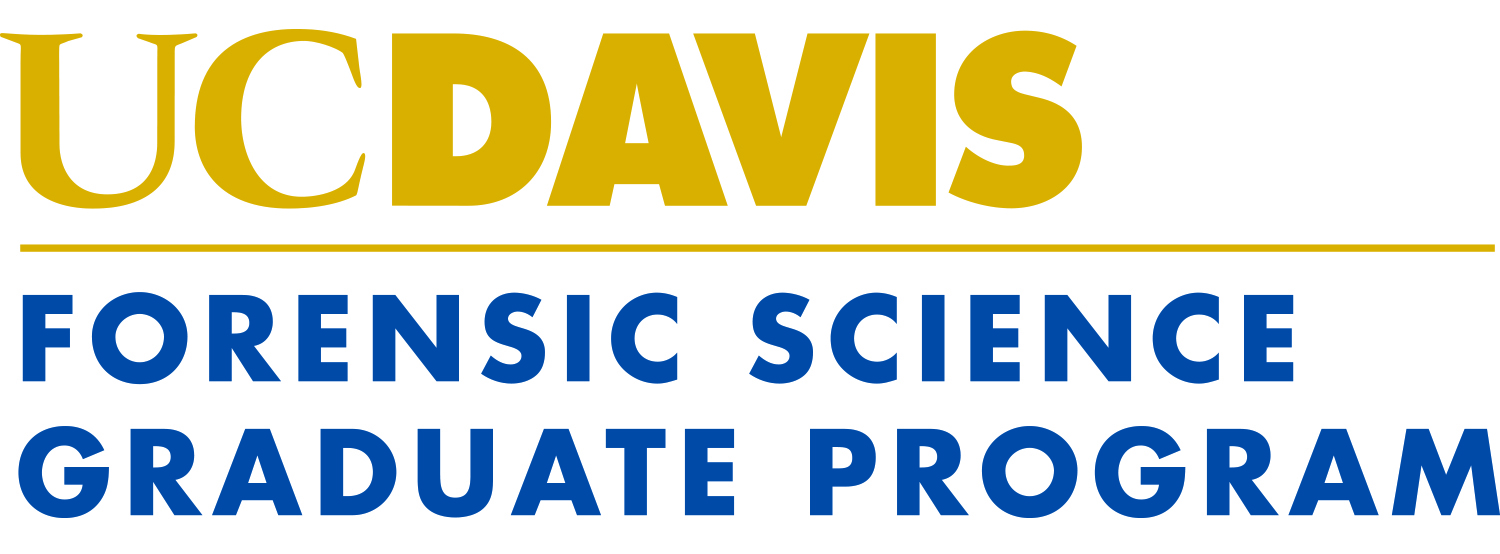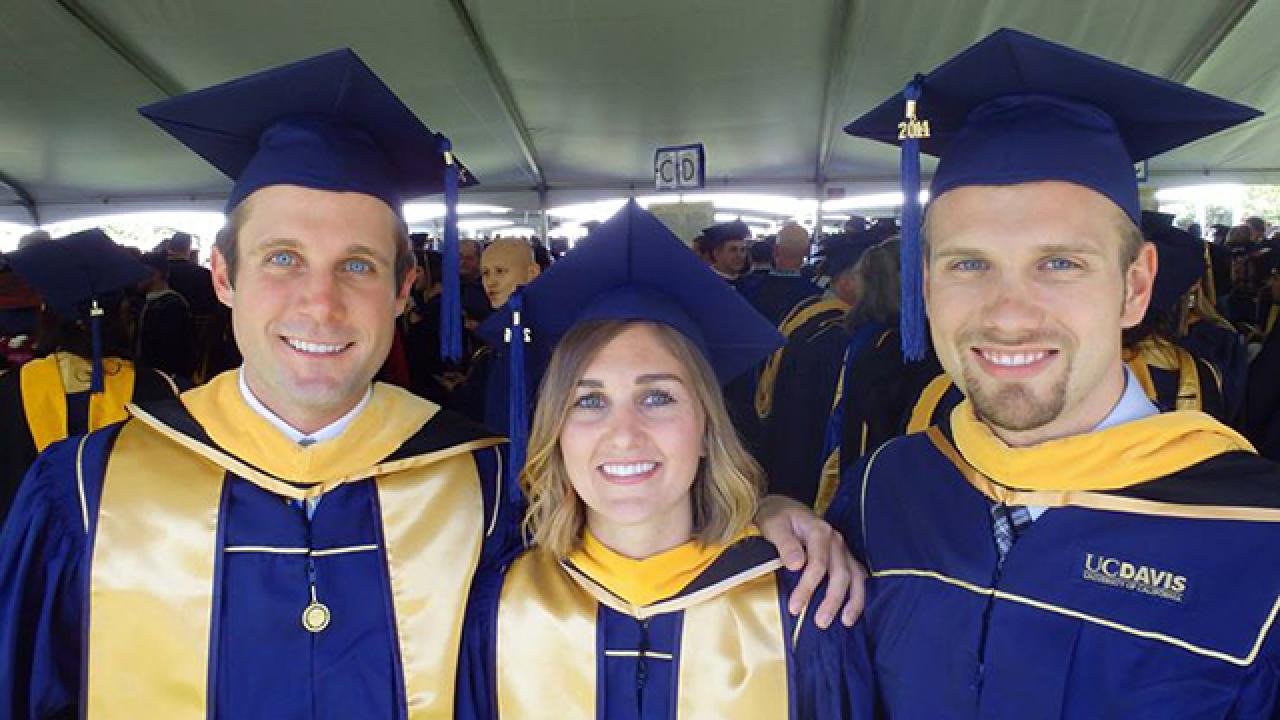
Crime Lab Ready
How UC Davis Gave Shane Williams the Skills to Succeed in Forensic Science
“Thanks to my forensic science degree, I started my career having already performed hundreds of extractions, quantifications, amplifications and interpretations. That’s an invaluable skill to already have,” said Shane Williams, a DNA analyst with Unified Forensic Lab in Denver and a graduate of the UC Davis Forensic Science Graduate Program.
The hands-on practice Shane gained in his graduate studies, a pillar of the UC Davis master’s program, fully prepared him for the realities of a working forensic scientist. “I was familiar with all the instrumentation that a regular DNA lab uses because the program had them available for us to use.”
A decade after completing the program, he still recalls the benefits of the UC Davis M.S. in Forensic Science and how it prepared him for a successful career in the field.
Exploring Career Paths
Shane’s fascination with forensic science traces back to his parents' professions. His dad served with the Nebraska State Patrol for over 30 years and his mom was a practicing attorney with lots of courtroom experience. “The combination of these two professions—the legal aspect and police work—is basically the ground truth for forensic science,” said Shane.
He earned a bachelor's degree in forensic science and biochemistry, with the intention of a career performing autopsies. But after a few years of undergrad, he decided that medical school was not the career path he wanted to pursue. His professor at the time, Ashley Hall (former forensic DNA professor at the University of Nebraska and current director of UC Davis’ Forensic Science Graduate Program), advised Shane on career opportunities in the field that didn’t require a medical degree, such as a DNA analyst in a crime lab.
“I ultimately chose to study at UC Davis because the forensic science program didn’t have out-of-state tuition and it didn’t hurt that Davis is centrally located between Napa, San Francisco and Lake Tahoe,” said Shane, who grew up in the small town of North Platte, Nebraska.
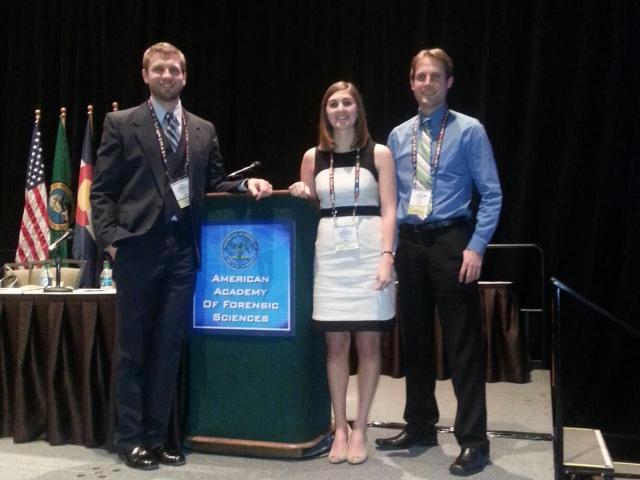
Gaining Career-Ready Expertise
The combination of theoretical concepts and real-world examples provided by the UC Davis program were crucial to setting Shane up for success. “The DNA classes I took more than prepared me to work as a DNA analyst in a crime lab,” he shared. “I had a comprehensive knowledge of the science, the process, the equipment and the reporting aspects of the discipline.”
A major benefit of the program was the curriculum, which reflected current industry trends thanks to the expertise of the faculty. “The classes were extremely relevant,” he said. “Most classes were taught by working DNA professionals, so not only were we using the most recent textbook publications, but we were also learning from those who were performing the work daily. Our teachers would leave their 9-5 crime lab job and then come teach our classes. It was very cool!”
This one-on-one access to professionals in the field also introduced Shane to the types of work forensic scientists performed and gave him a better understanding of the demands that can sometimes be associated with this profession.
Aside from imparting practical knowledge and skills, the program also prepared Shane for entering the workforce. “The program offered various interview workshops taught by forensic hiring professionals,” he explained. “These helped us become good overall candidates during the interviews and reminded us that more than forensic science was going to be covered in the interview.”
Leaning into faculty connections, the UC Davis Forensic Science Master’s Program also has a close working relationship with the California Department of Justice that students like Shane can tap into. “If you wanted to stay local to California, this program basically gave you the required skills to work in their crime labs,” said Shane, who spent the first five-and-a-half-years of his career working for the California DOJ Richmond DNA Lab before relocating to Denver. “The California DOJ hiring managers knew our program, the professors and the quality of education that we received.”
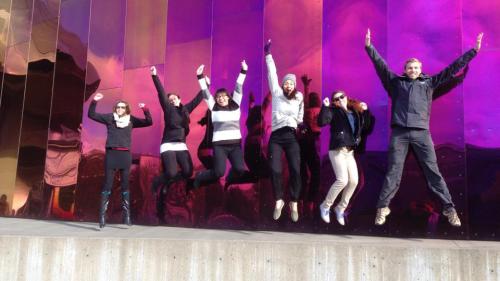
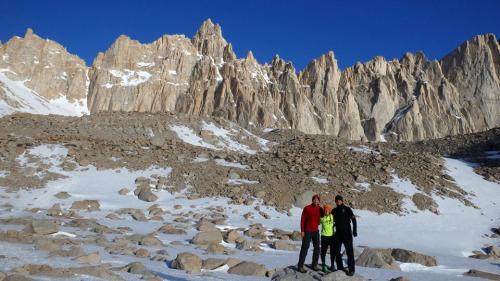
From Mock Crime Scenes to Lasting Connections
For Shane, the hands-on experience, faculty mentorship and peer networking he gained during the program were some of his most valuable takeaways. And, the hands-on thesis project, which he said might seem daunting in the beginning, is worth it in the long run.
“The program provided lots of hands-on experience,” he said. “I will never forget all the mock homicide crime scenes we worked on. Digging up a deceased pig leaves a lasting impression.”
Launch Your Forensic Science Career
Sign up for a free online information session to learn more about the program and get answers to your questions.
Whether you wanted to find a job immediately after graduation or continue your education with a doctorate, Shane said the faculty were there to help you achieve your goals. “Both the mentorship and guidance were top notch,” he said. “They cared about us as students, listened to our desires and did what they could to help us move forward.”
Looking back, Shane said the connections he made with his classmates have also been invaluable. “Because of this program, I have contacts in forensic labs across the country,” he said, adding that he’s able to lean on them for networking and support in his work.
“My classmates from the program have become friends for life. Some of us still travel and go on vacations together,” said Shane, who contributes this close-knit connection to the nature of the program. “Our program was extremely small and most of us were from out of state or country. We all took classes together and this friendship helped us study and made it easier to collaborate.”
